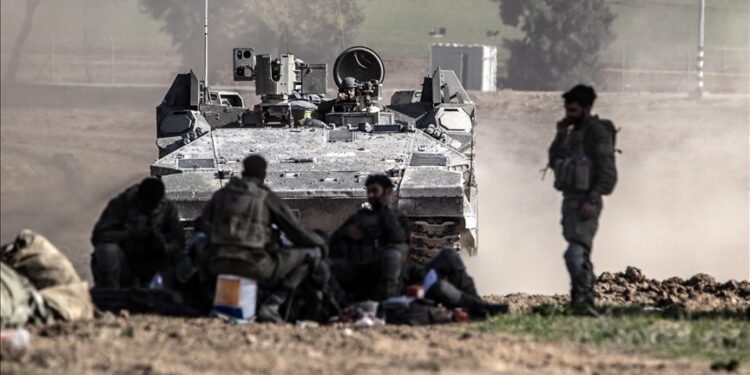Israel Targets Yemen Amid Ongoing Gaza Conflict, marking a significant escalation, with Israel broadening its military actions.
Israel Strikes Yemen: A New Front Amid Gaza Crisis
Israel has launched airstrikes on Yemen, targeting key infrastructure, including electricity stations, ports, and an oil plant. The attacks resulted in the deaths of at least nine people, further exacerbating regional instability. Tel Aviv justified the strikes as retaliation against the Houthi movement, which it accuses of aggression linked to the ongoing Gaza conflict. These developments mark a significant escalation, with Israel broadening its military actions beyond its immediate borders. The strikes disrupted critical infrastructure, leading to widespread electricity outages and raising fears of an impending humanitarian crisis in Yemen.
Israel’s Justification and the Context of Retaliation
Israel framed its actions as a response to alleged Houthi aggression, warning of further strikes if provocations continue. These airstrikes come against the backdrop of heightened regional tensions fueled by the crisis in Gaza, where civilian casualties and humanitarian challenges have drawn global attention. Tel Aviv’s stance reflects a broader pattern of escalating measures in the Middle East, suggesting an intent to deter perceived threats from actors sympathetic to Gaza’s plight. Israel Targets Yemen underscoring the fragile and volatile nature of regional geopolitics, as Yemen’s conflict now intersects with broader Middle Eastern dynamics.
Houthi Response: Condemnation and Retaliatory Promises
The Houthis, who control significant parts of Yemen, condemned Israel’s airstrikes, labeling them as acts of excessive force. They pledged retaliation, asserting that their actions will persist until what they describe as the “genocide in Gaza” ends. This rhetoric aligns with the group’s staunch support for the Palestinian cause, framing their stance as resistance against perceived Israeli injustices. As tensions mount, the Houthis’ vow to escalate raises alarms about potential spillover effects, which could further destabilize Yemen—a country already grappling with one of the world’s worst humanitarian crises.
Humanitarian Fallout: Civilian Infrastructure in Ruins
The strikes have compounded Yemen’s humanitarian challenges, damaging vital infrastructure and deepening the plight of its population. Electricity outages and disruptions to essential services have been reported, amplifying the suffering of civilians caught in the crossfire. Humanitarian organizations have expressed concern over the impact of these developments, warning of dire consequences for a region already strained by years of conflict. The destruction of key facilities underscores the broader civilian toll of military actions, as Yemen’s fragile state teeters on the brink of further chaos.
Broader Regional Implications: The Risk of Escalation
Israel’s airstrikes on Yemen have intensified fears of a broader regional conflict, as tensions in the Middle East reach a boiling point. The Houthis’ actions, tied to their support for Gaza, reflect the interconnected nature of conflicts in the region, where alliances and grievances often transcend national borders. Israel Targets Yemen Amid Ongoing Gaza Conflict threatening fragile peace efforts in Yemen while raising the specter of wider confrontations involving neighboring states. As regional powers closely monitor these developments, the urgent need for diplomatic intervention becomes evident to prevent a descent into unchecked violence. This emerging crisis highlights the complexities of Middle Eastern geopolitics, where actions in one theater of conflict often reverberate across others, making sustained peace ever more elusive.
Related Posts
















